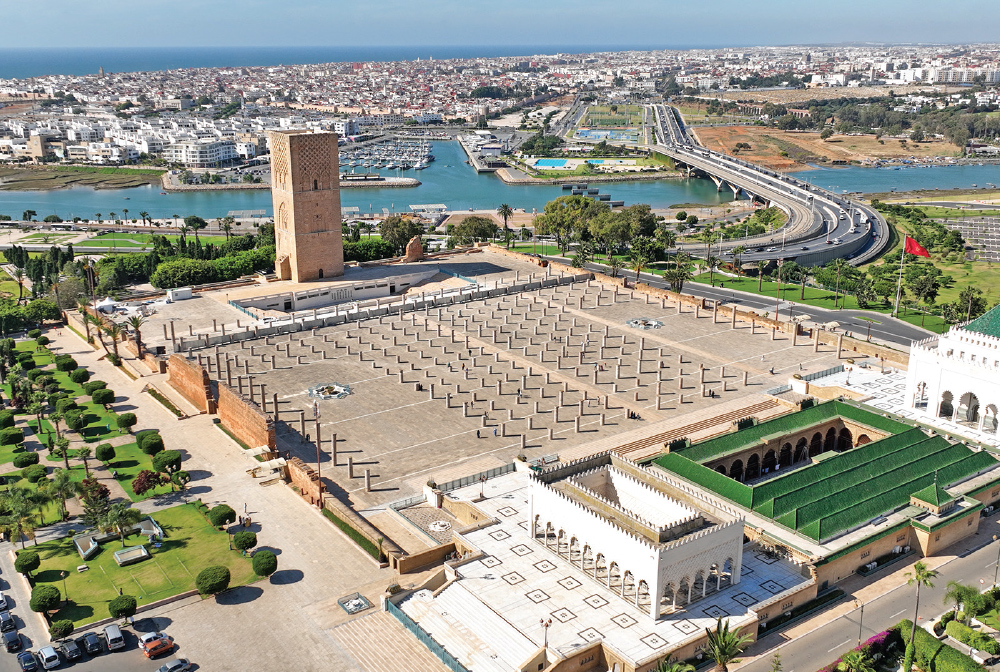
19 Jul Local facilitation of investment processes
Morocco’s reformed regional investment centers are one-stop shops for investors and focal points for territorial investment
In 2019, Morocco’s private-sector investment system was decentralized, following direction from King Mohammed VI that processes needed to be made easier for investors. Since then, many responsibilities have been delegated to 12 regional commissions that cover the country and are chaired by the regions’ Wali or governor. These commissions now handle all an investor’s paperwork and take decisions relating to issues as diverse as land access and permit authorizations, with approvals being granted on a majority vote.
Reporting to the commissions are the country’s 12 regional investment centers (CRIs), which have also been reformed. “The CRI’s have been set up as institutions with financial autonomy, plus human and material resources. We are positioned not only as one-stop shops for investors, but also as focal points for investment at the territorial level, as several roles have been added to our mandates, such as monitoring, promotion and strategic planning,” explains Nejma El Houda Bouamama, general manager of Rabat Invest, the CRI for Morocco’s capital region Rabat-Salé-Kénitra (RSK).
Notable improvement in service
The performance of the new system is impressive, she adds: “There has been a simplification of procedures and we have drastically reduced the processing time of investment applications from 130 days in 2019 to less than five days in 2022 at our regional level.” Rabat Invest has become more proactive as well. “For example, taking into account what industrial ecosystems already exist in RSK, we can target investors that will complete value chains in sectors and activities that are promising for the region and, therefore, the country,” says El Houda Bouamama.
In addition, the CRI has strengthened its upstream support for investors that are completing application processes by simplifying their access to information and assisting them in negotiations with other authorities.
An excellent illustration of the new system’s benefits is the speed with which the Irish paper-based packaging multinational Smurfit Kappa was able to set up a new factory in Rabat with the support of the CRI. “The investors felt confident about their relationship with us and that allowed them to take quick decisions. They realized they could trust us and that we were going to help them in a genuine and concrete way,” she reveals.
Major new investment fund
Alongside this, Rabat Invest has developed a strong, perpetual after-care service: the center keeps in regular contact with all investors in the region in order to assist in solving any issues as they might arise and to gather feedback on how RSK’s business environment can be improved or its procedures further simplified, she says: “This is a service I really believe in. It is crucial to accompany investors to ensure they are well set up, have everything they need and are entirely satisfied.”
El Houda Bouamama is keen to point out that, while Rabat Invest is a one-stop shop for investors, it does not operate in isolation: “There is a whole investment ecosystem and we work closely with partners, whether they be regional or national entities. It is an ecosystem within which all the partners are aiming to produce a lot of positive outcomes with real added value for the region and the country.” One example of this is a partnership agreement the CRI signed with the RSK region’s governorate in 2022 that has created a $123.82-million investment fund. Through this, the region will have $24.77 million available every year to support investments until 2026.
The fund will be used to target domestic and international private-sector projects across RSK that involve, for instance, research, innovation, sustainable development and high added-value industrial sectors. Interested potential investors should also be aware that Morocco’s new Charter of Investment is introducing differentiated territorial-related incentive benefits.
As a public body, El Houda Bouamama considers Rabat Invest’s teams to be business and investment service providers and facilitators: “In addition to this, I want to make the CRI a driving force for the improvement of the region’s business environment. Bringing solutions forward that enable positive change is very important to me.”
Capital gains as Rabat shines
The city is more than the kingdom’s seat of government, as record FDI inflows prove
Spearheading growth, investment and major developments in the capital’s administrative region of Rabat-Salé-Kénitra (RSK) is the Regional Investment Center (RIC), with the entity driving projects that promote Morocco’s excellent investment landscape.
Launched in the early stages of the new millennium, RIC RSK — also known as Rabat Invest — acts as a powerful catalyst for investment across the region’s multiple economic sectors, including agriculture, pharmaceuticals, automobiles, textiles, offshore outsourcing and tourism. Boasting modern infrastructure and many key competitive advantages over national and foreign competitors, RSK is also the leading player in the field of education because of prestigious universities.
Rabat Invest certainly enjoyed an outstanding 2022 as investment flows to RSK more than doubled year-on-year to nearly $10 billion. This impressive performance came as no surprise to general manager Nejma El Houda Bouamama, who highlights a strategic geographical position, talented workforce, enviable portfolio of investment incentives and buoyant economic sectors as key drivers for its success, along with the removal of red tape.
“Agribusiness, automotive, textiles, tourism, crafts, renewable energies, creative activities and entertainment are all areas that should appeal to investors from the US and elsewhere,” she says. “The region’s industrial position is becoming stronger and stronger thanks to the emergence of a new generation of industrial zones. There has also been a simplification of procedures; we have drastically reduced the processing time of investment applications from 130 days in 2019 to less than five days in 2022.”
